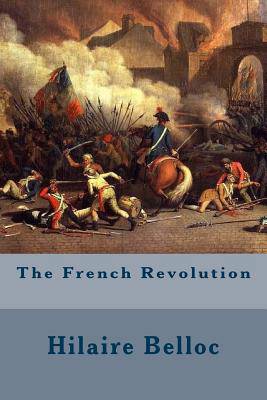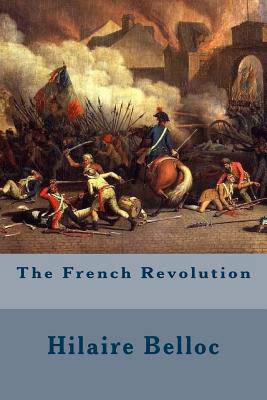
- Afhalen na 1 uur in een winkel met voorraad
- Gratis thuislevering in België vanaf € 30
- Ruim aanbod met 7 miljoen producten
- Afhalen na 1 uur in een winkel met voorraad
- Gratis thuislevering in België vanaf € 30
- Ruim aanbod met 7 miljoen producten
Zoeken
Omschrijving
The object of The French Revolution, by Hilaire Belloc, is not to recount once more the history of the French Revolution: that can be followed in any one of a hundred text-books. Their object is rather to lay, if that be possible, an explanation of it before the English reader; so that he may understand both what it was and how it proceeded, and also why certain problems hitherto unfamiliar to Englishmen have risen out of it. The French Revolution was a period of far-reaching social and political upheaval in France and its colonies that lasted from 1789 until 1799. It was partially carried forward by Napoleon during the later expansion of the French Empire. The Revolution overthrew the monarchy, established a republic, catalyzed violent periods of political turmoil, and finally culminated in a dictatorship under Napoleon who brought many of its principles to areas he conquered in Western Europe and beyond. Inspired by liberal and radical ideas, the Revolution profoundly altered the course of modern history, triggering the global decline of absolute monarchies while replacing them with republics and liberal democracies. Through the Revolutionary Wars, it unleashed a wave of global conflicts that extended from the Caribbean to the Middle East. Historians widely regard the Revolution as one of the most important events in human history. The causes of the French Revolution are complex and are still debated among historians. Following the Seven Years' War and the American Revolution, the French government was deeply in debt. It attempted to restore its financial status through unpopular taxation schemes, which were heavily regressive. Years of bad harvests leading up to the Revolution also inflamed popular resentment of the privileges enjoyed by the aristocracy and the Catholic clergy of the established church. Demands for change were formulated in terms of Enlightenment ideals and contributed to the convocation of the Estates General in May 1789. During the first year of the Revolution, members of the Third Estate (commoners) took control, the Bastille was attacked in July, the Declaration of the Rights of Man and of the Citizen was passed in August, and a women's march on Versailles that forced the royal court back to Paris in October. A central event of the first stage, in August 1789, was the abolition of feudalism and the old rules and privileges left over from the Ancien Régime. The next few years featured political struggles between various liberal assemblies and right-wing supporters of the monarchy intent on thwarting major reforms. The Republic was proclaimed in September 1792 after the French victory at Valmy. In a momentous event that led to international condemnation, Louis XVI was executed in January 1793.
Specificaties
Betrokkenen
- Auteur(s):
- Uitgeverij:
Inhoud
- Aantal bladzijden:
- 152
- Taal:
- Engels
Eigenschappen
- Productcode (EAN):
- 9781508573081
- Verschijningsdatum:
- 22/02/2015
- Uitvoering:
- Paperback
- Formaat:
- Trade paperback (VS)
- Afmetingen:
- 152 mm x 229 mm
- Gewicht:
- 213 g

Alleen bij Standaard Boekhandel
+ 23 punten op je klantenkaart van Standaard Boekhandel
Beoordelingen
We publiceren alleen reviews die voldoen aan de voorwaarden voor reviews. Bekijk onze voorwaarden voor reviews.











